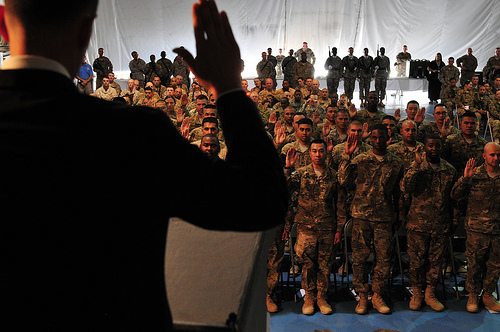DoD: Random Lie-Detector Tests Increase Personnel Security
Periodic lie detector tests contribute to better personnel security, according to a recentDepartment of Defense (DoD) studyof its own polygraph procedures.
“There is clear and compelling support from the DoD security and adjudicative community for the polygraph as a key tool in advancing personnel security, resolving significant adjudicative issues, and mitigating the insider threat and the threat posed by Foreign Intelligence Entities,” the study says.
Commissioned by the Principal Deputy, Under Secretary of Defense for Intelligence in June 2011, the study examined the DoD’s polygraph practices to make sure all activities complied with DoD instruction. Three Military Criminal Investigative Organization subject-matter expertsanalyzed statistical data from 43,434 polygraph tests administered between May 1, 2012 and April 30, 2011. The study found that all nine DoD polygraph programs to be in compliance with DoD standards. It also found that the DoD’s polygraph program “both quantitatively and qualitatively contributes to better personnel security.”
Of 41,057 polygraph tests conducted as part of personnel security screening, 3,903 led to admissions of misconduct. These ranged from minor offenses to failure to disclose foreign counterintelligence contacts to serious felonies. In most cases, the derogatory information wouldn’t have been disclosed without the polygraph as much of the information wasn't volunteered prior to the test, the study says.
The two strongest advocates of using a polygraph for personnel security were the Defense Intelligence Agency and the National Security Agency (NSA). Both agencies said the polygraph was the single mosteffective tool for finding information people were trying to hide.
The NSA reported that for the five-month period from May to September 2011, polygraph examiners recorded more than 1,470 admissions to misconduct including child pornography, drug use, and falsifying documents. In a majority of the cases, the test subjects had not previously disclosed the misconduct, only revealing it in pre- or post-test interviews withpolygraph examiners.
The National Geospatial Intelligence Agency (NGA) began pre-employment polygraph testing last October. The NGA found that 36 percent of examinations produced previously undisclosed information.
The study recommends that all nine DoD polygraph programs continue to administer random polygraphs.
A complete list of the observations and recommendations from study can be foundhere.
